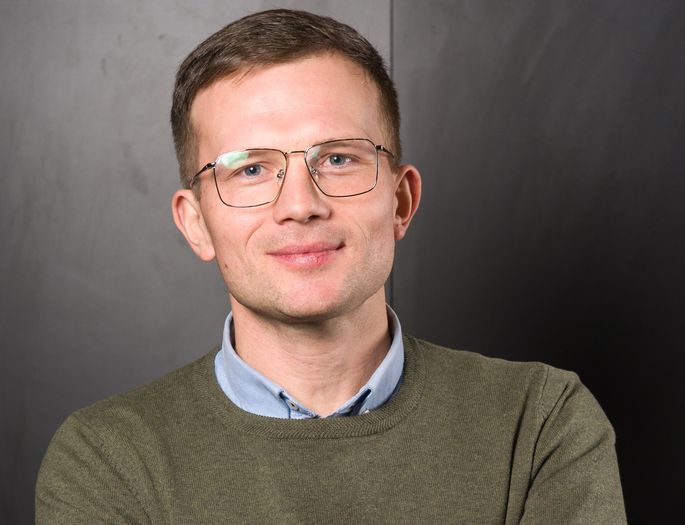
The European Research Council has announced the results of the Starting Grants 2022 call. One of its winners is Dr Rafał Kucharski from the Jagiellonian University Faculty of Mathematics and Computer Science. The researcher will investigate the influence of artificial intelligence on urban mobility, receiving 1.49 million euro for his five year-long project.
Since 2008, the ERC awards funding for the most important research projects in the European Union and associated countries. The Starting Grants scheme is directed to scientists that successfully defended their PhD thesis two to seven year prior, regardless of their academic field.
This year, nearly 3,000 scientists applied for the grant, which was ultimately awarded to 408 projects from 26 countries for a grand total of 636 million euro. Most of these projects will be carried out in Germany (81), Great Britain (70), the Netherlands (40) and France (39). The grant will also provide funding for four Polish projects: aside from the Jagiellonian University, these will be realised at the Nicolaus Copernicus University in Toruń and Nencki Institute of Experimental Biology of the Polish Academy of Sciences.
‘Speaking as the Dean of the Faculty of Mathematics and Computer Science, I would like to express my pride and joy that Dr Rafał Kucharski will be the first person to carry out his ERC-funded project at our Faculty. He was hired last year as part of the Excellence Initiative at the Jagiellonian University. Despite the short time he’s been working here, he’s already well integrated with our academic community. He’s managed to create a research team which will now thrive thanks to the grant money, exploring crucial areas. It’s worth mentioning that this project will have broad practical ramifications that will affect our daily lives’, said Prof. Włodzimierz Zwonek.
Artificial intelligence can offer helpful ways of resolving the problems of urban transportation and communication. However, we are still largely unsure of the potential risks. Dr Rafał Kucharski plans to check whether intelligent machines will be able to outsmart us, arriving at their destinations faster or cheaper than humans. Introducing AI into cities could mean that people unable to take advantage of new technologies will travel for longer periods of time and in worse conditions. The project COeXISTENCE – Playing mobility games with intelligent machines. Framework to discover and mitigate human-machine conflicts will be devoted to assessing the potential risks and then finding ways to synergise the use of urban spaces.
‘The way that transportation in cities works – the fact that some streets are prone to traffic congestion and certain bus and tram lines are more crowded than others – is based on human interactions, their schedules, destinations and chosen modes of transit. If we leave the planning of these things to machines, there is a chance they might win. It may turn out that owners of self-driving cars will spend less time stuck in traffic jams, while others will suffer, as the limited amount of resources will be used up by AIs’, said Dr Rafał Kucharski.
‘In our interdisciplinary research, we will combine urban mobility models with deep machine learning. The virtual environment will simulate people with behavioural models and machines using deep neural networks to make optimal decisions with limited access to resources. We will use the four games each and every one of us inadvertently plays with other drivers and passengers to first teach the machines to imitate us, then outsmart us using their advantages, and finally submit and work with us in order to achieve carbon neutrality in cities’, he added.
Dr Rafał Kucharski started working at the JU Faculty of Mathematics and Computer Science in 2021. He supervises a four member research team studying the models of car sharing in cities within the framework of a grant funded by the National Science Centre. In 2019–2021, he was a postdoc at the Delft University of Technology, where he worked on modelling and simulating mobility services such as Uber. Earlier, he designed mobility models used in Warsaw and Kraków at the Kraków University of Technology. As a PhD student, he collaborated with the Sapienza University of Rome, writing algorithms for urban transit crisis management.





